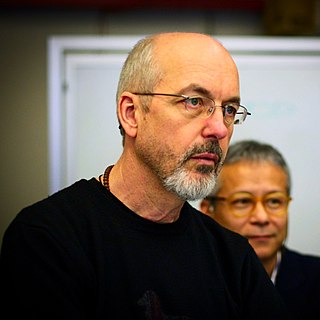A Quote by Dale Carnegie
One of the most tragic things I know about human nature is that all of us tend to put off living.
Related Quotes
Consider a man riding a bicycle. Whoever he is, we can say three things about him. We know he got on the bicycle and started to move. We know that at some point he will stop and get off. Most important of all, we know that if at any point between the beginning and the end of his journey he stops moving and does not get off the bicycle he will fall off it. That is a metaphor for the journey through life of any living thing, and I think of any society of living things.
There were certain things that grabbed my interest, such as photosynthesis, such as us living off plants and plants living off us. You look at everything in that light - so if I'm looking at ice cubes, I might start thinking about absolute zero, or Fahrenheit and Celsius. There's so much that can make me think about science.
A wealth of knowledge is openly accessible in nature. Our ancestors knew this and embraced the natural cures found in the bosoms of the earth. Their classroom was nature. They studied the lessons to be learned from animals, knowing that much of human behavior can be explained by watching the wild beasts around us. Animals are constantly teaching us things about ourselves and the way of the universe, but most people are too blind to watch and listen.
Idealists are people who believe in the potential of human nature for transformation. . . . The most essential attribute of human nature is its mutability and freedom from instinct . . . it is always within our power to change our nature. So it is actually the idealists who are on the mark and the realists who are off base.
I don't know what it is about human beings but most of us really like reading about or observing sexual tension and romance. It's just so much fun. I don't know if there is some Darwinian thing in us that really responds to that, but I think the most memorable scenes to me in books and movies are the ones where a couple is about to kiss.





































